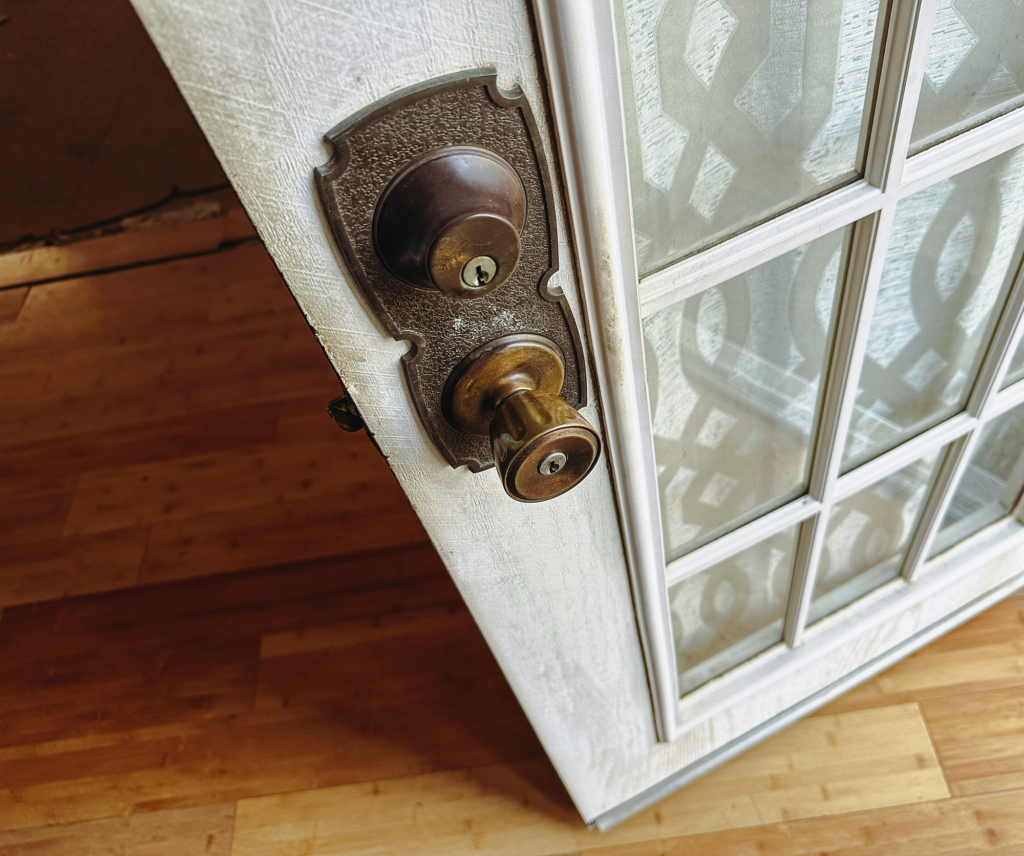By Katherine Malaga

Our bed is a warm refuge from the chilled air outside the frosty window. Moonlight shines across Ross’s sleep-filled face. Under thick quilts, my hand on his chest rises and falls with his steady breaths.
I watch him open his eyes and peer into the shadows.
“Did you turn off the hallway?” he asks.
Turn off the hallway? Ten years after a stroke, his words still kaleidoscope in unpredictable and wondrous patterns.
“You mean lock the door?”
He knits his brow and starts to sit up.
“I’ll check,” I say.
Before, he was the one who “buttoned up” the apartment at night. I emerge from the bed, set my bare feet on the cold floor, and walk to the front door.
“It’s locked,” I tell him, slipping back into our shelter. We drift off into dream time.
We have turned off the hallway.
Two months later, in the depth of night, two masked and hooded intruders slice through the lobby doors of our senior building without a sound. Blurry camera images trace their silent steps and capture them as they cutthe locks to the garage. They steal away into a waiting truck with bicycles, electric scooters, and our sense of security.
The management installs higher-grade locks, invests in infrared vision cameras, and hires a security service to spot check our building at random times.
We rest easier.
A few weeks later the new cameras show a lone unmasked youth breaking into our cafeteria through an unreinforced side door. The dismayed cook says the thief could not wrestle the large screen TV off the wall, but did manage to run off with a professional grade electric mixer, a panini maker, and $300 worth of chocolates and candies as the loud alarm alerted the police.
We cannot turn off the hallway.
A year later, Ross cannot tell the time or add two plus two. “Dementia,” doctors say. Progressive and unstoppable deterioration in his brain. He moves to a nursing home, a 24/7 cocoon. Wide doorways for wheelchairs, steel grab bars and easy-to-reach call lights, kind aides and nurses. We sleep apart–he, between the side rails of his narrow twin, and I at home in our wide queen.
“What is your name again,” he asks when I visit.
We cannot turn off the hallway.
His forehead burns; his cough is dry; his words are slurred. I steady him when he almost loses his balance on the way to the bathroom.
“Covid,” the test says. Ten days of isolation in the confinement of his room.
He has dodged the virus for two years. Masks and shields, gowns and gloves, vaccines and boosters. But the spiky coronas float through the air, seep through closed doors and sealed windows, pierce the membranes of his cells, and invade his body.
We cannot turn off the hallway.
Katherine Malaga has worked as a registered nurse, a Spanish-English language interpreter at a large urban hospital, and as a teacher of English as a Foreign Language in an adult learning center. Now retired, she volunteers as an international courier to pick up and deliver stem cells to patients waiting for transplant. She has been her husband’s caregiver for fourteen years.
Photo by Derek Pell on Unsplash